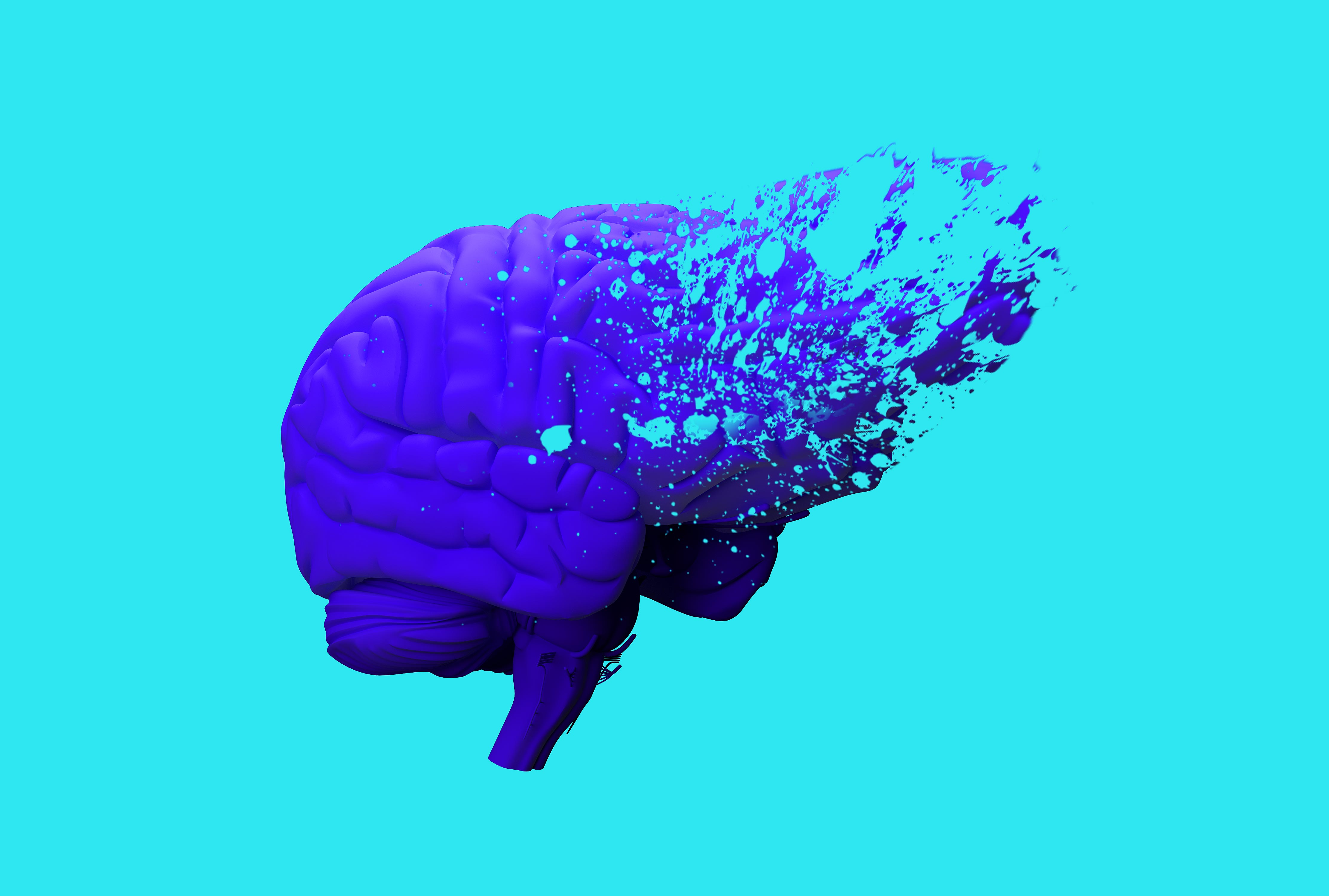Well-timed Hormone Treatment Could Reduce Women's Dementia Risk

Key Points
- Experts believe a loss of estrogen, which has protective effects on the brain and body, could explain why menopausal and postmenopausal women have an increased risk of dementia compared to men of the same age.
- Previous research on HRT and Alzheimer's disease has produced mixed results, but a new meta-analysis could help make sense of conflicting data.
- The analysis of 51 studies suggests that starting hormone treatment when menopause symptoms begin could help protect women's brains, while starting it later in life may be ineffective or detrimental.
Women are about twice as likely as men to develop Alzheimer's disease, the most common form of dementia. Their longer lifespans may be one factor since dementia risk increases with time, but it doesn't explain why women are more vulnerable than men of the same age.
A recent meta-analysis examined the longstanding theory that the loss of estrogen during menopause could be responsible for women's increased risk of dementia. Its findings suggest hormone replacement therapy (HRT) may offer some protection, provided it's taken at the ideal time.
Does HRT help against dementia?
At 45 years of age, women have about a 20 percent risk of developing Alzheimer's in their lifetime, according to the Alzheimer's Association. For men of the same age, the chance is 10 percent.
Multiple factors are likely at play, a 2021 report suggested, but menopausal women's plummeting estrogen levels may be one of the more significant.
However, research on hormone therapy and dementia has produced mixed results.
Combined estrogen and progesterone therapy appeared to double a woman's risk of dementia, and estrogen-only treatment seemed to increase her dementia risk by 50 percent, the 1992 Women's Health Initiative Memory Study suggested.
A follow-up study in 2017 found women who took estrogen-only therapy were 26 percent less likely to die of Alzheimer's. A separate 2002 systematic review found hormone therapy reduced dementia risk by 34 percent.
Other research, including a 2015 study of more than 2,000 women ages 65 and older, has indicated estrogen replacement therapy can enhance cognition in women without dementia.
Yet, other studies, such as this 1994 report, have indicated menopausal hormone therapy does not affect women's risk of developing dementia.
Researchers evaluated six randomized control trials and 45 observational studies that incorporated data from more than 6 million women for the 2023 study published in Frontiers in Aging Neuroscience.
The findings suggest women who took estrogen-containing hormone treatment in their 40s or 50s, soon after menopause symptoms began, were less likely to develop dementia than those who didn't take estrogen.
The results suggest more conclusive research is needed to investigate the potential benefits of hormone replacement therapy (HRT) for women's cognitive health, the authors wrote.
"As authors acknowledged, the analysis has its limitations, including that many of the studies included are observational or non-randomized," said Hugh Taylor, M.D., a professor and chair of the department of obstetrics, gynecology and reproductive sciences at Yale School of Medicine and the chief of obstetrics and gynecology at Yale-New Haven Hospital in Connecticut.
As such, some of the women who chose to take HRT may have done other things to promote their health, while those who chose not to may have had other health risks that were unaccounted for, all of which could contribute to dementia risk.
"Randomized studies can specifically look at the drug in question," he said. "However, with estrogen, the randomized trials were typically conducted in older women—beyond the time of maximal benefit."
Still, he found the analysis exciting because it examines the benefits for a group that includes newly menopausal women and is likely representative of most women using HRT. These women can be reassured that there may be benefits in taking hormone replacement therapy, including, potentially, a decreased risk of dementia.
"This is very different from the often-contrived studies that asked women to start hormones into their 70s and found increased risk," he said. "The risk is not there if one starts hormones at the typical time of menopause—the early 50s."
The report is a meaningful addition to existing research on the benefits of starting HRT early, according to Robin Noble, M.D., an OB-GYN in Portland, Maine, and the chief medical officer of Let's Talk Menopause.
"Dementia and Alzheimer's are devastating diseases that will impact all of us, especially with an aging population," she said. "Even a small improvement in the risk of developing these diseases, or even an option that may delay the onset of this pathology, is a huge game-changer for all of us. The benefits reported in these studies are not small. They are significant."
Recommended
- Michelle Obama Shares During a Candid Conversation About Menopause: The former first lady speaks openly about the changes to her body during menopause.
- Your Burning Questions About Menopause and Sleep Answered: Hormones keeping you up? There are ways to slumber again.
- 4 Health Risks to Watch for After Menopause: As estrogen levels drop, we're more prone to certain diseases. Simple steps offer protection.
What does a lack of estrogen do to a woman's brain?
Estrogen is most closely tied to reproductive functions, but its receptors appear throughout the body. The hormone affects multiple systems and processes, including cognitive and emotional health.
Neurological changes occur when estrogen levels plummet, affecting brain structure, connectivity and energy metabolism, according to a 2021 study published in Scientific Reports. As a result, women may experience menopause symptoms such as forgetfulness, insomnia, mood changes, brain fog and hot flashes—a product of dysregulation in the hypothalamus.
These alterations may also increase women's dementia risk. Estrogen deficiency is associated with diminished gray matter, and tissue erosion is found in areas of the brain connected to memory, a 2023 report suggested. Menopausal hormone therapy, when started early, may help to preserve these tissues.
Additionally, animal studies suggest a connection between low estrogen and the accumulation of abnormal protein amyloid-beta (Aβ), which may contribute to Alzheimer's disease by forming plaques in brain tissue, according to a 2005 report.
Why are the timing and type of hormone treatment important?
In this latest meta-analysis, researchers noted women who started combined estrogen-progesterone therapy soon after beginning menopause and continued it for more than 10 years had a 26 percent lower risk of dementia compared to those who didn't take HRT. Those who began estrogen-only therapy at around the same time had a 32 percent lower chance of dementia.
Estrogen-only therapy is only appropriate if a woman no longer has her uterus. If she does, estrogen-only treatment may cause the lining to become too thick, which can raise the risk of endometrial or uterine cancer, according to the American Cancer Society (ACS). Estrogen-progesterone combination therapies may prevent this from occurring.
Taking estrogen alone didn't affect women's risk if they began taking it at age 65 or older or more than 10 years after menopause onset, per the analysis.
"The understanding is that inflammatory pathways to cardiovascular disease, dementia and other conditions arise when estrogen declines," Noble said.
Estrogen, with its anti-inflammatory characteristics, can help prevent these pathways from forming or slow their development, but it can't repair existing damage, Taylor added.
"Perhaps think of it as stomping on the brakes and then restarting a car years later versus just having systems continue to run smoothly," Noble said.
Moreover, starting hormones after damage has occurred could exacerbate the problem. In the analysis, researchers found women who started taking estrogen-progesterone HRT more than 10 years after beginning menopause had an increased risk of dementia.
This may be due to progesterone's "antagonizing effect," researchers wrote. This occurs when a hormone opposes or reverses the effect of another hormone, explained Sara Fiene, M.D., a Salt Lake City-based OB-GYN and a representative of Happy V, a manufacturer of vaginal health products.
The progestin in menopausal hormone therapy is only there to protect the uterus, Taylor added. Just as it may counter the stimulating effect of estrogen in the uterus, it could have a similar effect in other areas, including blood vessels and the brain.
"Studies have shown similar correlations between HRT and women's risk of coronary heart disease," Fiene said. "When women start menopausal hormone therapy within 10 years of menopause onset, their risk decreases, whereas starting more than 10 years later increases the risk. The closer to menopause onset a woman starts HRT, the more beneficial the outcomes on the menopausal transition and other health factors."
Protecting Your Fertility During Ovarian Cancer Treatment: Knowing your reproductive options can preserve the possibility of starting or growing a family.
Does estrogen help prevent Alzheimer's disease?
More clinical trials are needed to explore the connection between hormone replacement therapy and Alzheimer's disease. Still, some research—this 2005 report is one example—indicated estrogen replacement may prevent Alzheimer's, delay its onset or diminish symptom severity in people with the disease.
Hormone replacement therapy may reduce Alzheimer's risk in women who carry the APOE4 gene, the strongest risk factor for dementia, a 2023 study published in the journal Alzheimer's Research and Therapy suggested.
The researchers found women with the gene who started HRT early in their menopausal transition had better memory and cognitive function and larger brain volume later in life compared to women with the gene who didn't take menopausal hormone therapy.
The benefits were most pronounced when women started hormone replacement therapy during perimenopause, which can occur months or years before menstruation ceases. Study authors emphasized that it's too early to say for sure if HRT reduces dementia risk but that it may be important.
Noble and Fiene agreed that HRT could likely prevent Alzheimer's since research indicates it can have multiple positive effects on the brain, from supporting metabolic pathways that affect neurotransmitters and glucose uptake to preventing or reducing harmful inflammation.
The bottom line
Although menopause is a natural physiological process, its symptoms and side effects can dramatically alter a woman's life. Hormone treatment may help mitigate some of these health issues, including dementia risk, particularly when taken at the right time.
"Though it should not be prescribed or taken without consideration of its adverse effects or discussion with a physician, estrogen is a powerful and wonderful hormone with great potential," Fiene said. "We have known of its heart- and bone-protective qualities for some time and are now just beginning to understand its brain-protective qualities."
To learn more about whether menopausal hormone therapy is right for you, speak with your healthcare provider.


















